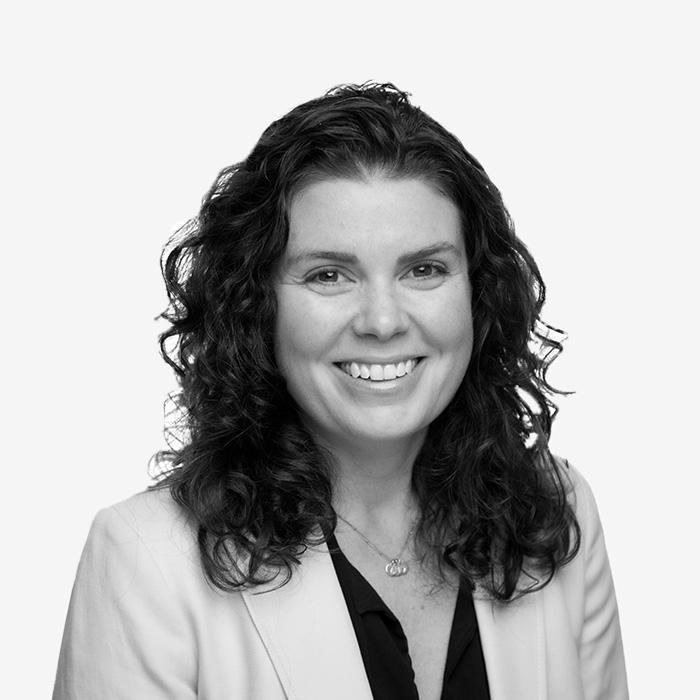
Podcast
Harnessing AI for wealth management with Allie Carey
The Digital Phorum with PACT
Harnessing AI for wealth management with Allie Carey
Allie Carey, Global Head of Strategy for our Private Banking and Wealth Management business, joined Michael Bachman and Peter Coffee on "The Digital Phorum" to dive into the transformative role of AI in wealth management. They explored the challenges and opportunities presented by AI technologies in making financial services more accessible and integrated.
Michael Bachman: Welcome to another episode of Digital Phorum with Coffee and Bach. This is where we talk about all things technology, emerging technology, artificial intelligence, and its fit in the world. This is Michael Bachman. I'm joined by my co-host Peter Coffee. He's from Salesforce. I'm from Boomi, and today we have a wonderful guest for you. We're joined by Allie Carey, Chief Strategy Officer of Banking and Wealth Management. We're glad to have her today. But before we jump in with Allie and ask all sorts of practical questions around AI, I want to remind you of PACT Phorum. Again, this is the Philadelphia Alliance for Capital and Technologies PHorum, that's P-H-O-R-U-M 2025. This is our marquee technical conference for the Philadelphia region. We hope to see you there and if you would like a discount to PACT Phorum, which will be held at the Comcast Innovation Center on Tuesday, April 22 of this year, enter in code TDP2025 and we will see you there. Allie, welcome to Digital Phorum with Coffee and Bach.
Allie Carey: Thank you. It's so exciting to be here. I've been part of the team pulling together Phorum for the past three years, and the three of us get to have fun conversations every other week. It's exciting to take it on the road, I'll say.
Michael Bachman: Well, we're glad to have you here and we have a whole bank of questions loaded for you. And first, why don't you tell everybody a little bit about yourself and what you do at SEI.
Allie Carey: Great. Yeah, so as you mentioned, Mike, I am the Chief Strategy Officer of SEI's private banking and wealth management business. And we're really bringing to the industry some key capabilities that are a foundation for financial services and specifically wealth management. Sometimes we like to say that Wall Street runs through Oaks, Pennsylvania, and most people don't know. So as a technology and outsourced operation and asset management provider to banks, we really are working to power the future of wealth and the future of wealth. AI is sprinkled throughout all of that, and it's a game changing time and one I'm really excited about. I have a painting in my house, it's a ship that has a whole host of sails, so it's that schooner, but in the middle it has a steam stack. So it was on the edge of steam power coming in. And I use that as inspiration because I truly feel like we're in a similar moment in time. We're holding onto the past and dipping our toe into the future to see how much faster it can take us. And wealth management is just prime for it.
Peter Coffee: Allie, when people hear the phrase wealth management, I suspect that they think we're talking about a very elite fragment of the marketplace. But I saw a number the other day that said that for every hundred dollars that's paid in wages in the United States, $20 moves across generations by inheritance. I mean preserving wealth against a volatile tax environment and protecting wealth for future generations. This is not just the dynastic conversation of a show like Succession anymore. Many ordinary households, seems to me, need to be adopting a wealth management perspective, but that means they need wealth management services delivered at a scale and at a level of affordability that, that wealth management practice has not had to provide in the past. Is that among your great challenges now?
Allie Carey: It really is, and I like to look at it as an opportunity, honestly, because we're at a time where, to your point, Peter, services that have traditionally been only accessible by the rich are now becoming truly accessible by anyone. The mass market, to those just coming into the workforce, to even minors and children, there are service providers out there that are focused on providing opportunity for kids to invest, for kids to learn about the markets, to become financially literate. Balancing a checkbook is not what we learn today. That's all taken care of for us. We log in and we see, "Oh, I don't have enough money, or I do have enough money," so what's the next step?
So there's so much access, unprecedented access to wealth management products, but that doesn't mean we're finished, right? It's now connecting those products. So I have an investment account, I have a bank account, I have an estate plan. You have firms like Trust & Will or Good Wealth that are making estate planning and trust services very accessible to the mass market at an affordable rate, but they're still disconnected and to be able to protect and grow wealth, that's where a wealth manager has been so successful in helping the wealthy. So how can create technology experiences that pull those things together? That's the big opportunity.
Peter Coffee: One of the really key points is that when I've spoken with financial services providers, I will sometimes ask the question, I walk in the door, I've got a checking account, a savings account, an educational account for my kids, a car loan, a home loan, and a retirement account. How many of me do you know? And they look at the upraised fingers. Well, we know the six of you that we do business with. We know the other two of you that we're marketing to not realizing that you're the same person on different channels and the idea that you'll have to not merely add automation to those silos, but really take decisive action to reorganize your data around the customer as a person on the life journey, as a member of a family, as a member of an affinity network, the opportunity for AI to do that is huge. But I wonder if the path of least resistance isn't for each of the silos to introduce AI, say what a good buy am I.
Allie Carey: I really think, and it really kind of gets back to the episode, the second episode of this podcast is the data.
Peter Coffee: Yes.
Allie Carey: So the data available on a mortgage customer is very different than the data that's available on an investment account. And these data sets are so disparate, bringing them together into one place and being able to differentiate between mortgage interest and investment interest or a share account and a price of a stock versus the principal amount of a loan. That's the challenge and bringing that together. And there's tools now that we can do this, right? There's data lakes and clouds and all of these different things, but that's where a human is outside of their breadth. They can't look across all of that data and create insights from it. That's the power that AI brings. But it really starts with liberating the data from those different business silos.
Peter Coffee: It's almost as if we have a problem in that it's called artificial intelligence, as if the thinking is the hard part when it's really artificial comprehension.
Allie Carey: Right.
Peter Coffee: Because to your point, the breadth and diversity of the data sets that need to be fused into an understanding of a customer and a customer's intentions and goals is perhaps the greater challenge.
Allie Carey: And that's what a wealth manager has done for so long.
Michael Bachman: Well, so with that, excuse me for interrupting and just connecting these dots for AI or agentic systems or the new level of cognition that we're experiencing today, how are wealth managers poised, primed, ready to use these kinds of systems to bring those disparate data sets together?
Allie Carey: So it all starts with the people, and honestly, it's educating the people, getting adoption of AI tools that are available to us as consumers because financial services, as we all know, is a highly regulated space and there's a lot of concern around privacy, around access to data, permissioning data, and making sure that all of our friends in legal and compliance are satisfied with the governance that's set up around this. So at an enterprise level in financial services, that is paramount. Then there's the education of practitioners in the industry around how to use generative tools and not even generative tools. They get a lot of the press today, but there's so much that machine learning can do inside of financial services that quite honestly is already happening, but it's making it apparent that to the employee base, either in your enterprise or across the industry, how to use it, how to engage with these tools to unlock that creative thinking of, "Hey, I do this day to day in my role and it stinks and I've kind of accepted that I have to do this, but maybe I don't have to accept that anymore."
And unlocking those possibilities is where we are, I think in financial services. There's a lot of point solutions. I solve this particular problem with my AI tool. What we need to get to is the more platform or holistic workflow solve. Peter, getting back to what you said, the life cycle solve. I was speaking to somebody recently who's trying to basically automate personal finance, and his whole point is, we're trying to teach-
Peter Coffee: And for my next step, I'll cure world hunger and take us to Mars.
Allie Carey: Exactly right. But his point is we're trying to teach people personal finance. They don't have the time to learn it.
Peter Coffee: No.
Allie Carey: We can automate these things, which will only mean better decision-making, more wealth creation and better outcomes for people throughout the world to solve world hunger next to your point, Peter. But it's unlocking those creativity from people that are doing it day to day. That's where we are, I think in financial services. We're primed for it.
Peter Coffee: Let's double underline that word adoption because Peter Drucker famously said, "Invention is not innovation. Innovation happens when an invention achieves adoption." Are people seeing these things as I think, to your point, power tools that will take over the low value but time-consuming aspects of their work? Or do many of them regard these things as competition for their job instead of empowerment in their job?
Allie Carey: We talk a lot about competition, and it's not in the breadth of taking jobs. It's more of what jobs should people be doing in the future. And we're starting with augmentation. So we're augmenting the jobs people are doing today to create efficiencies to create more scale in the business, limit risk. So when people aren't manually doing things, that limits risk, which is a great thing in financial services, I think where we need to get to is what shouldn't people be doing anymore that AI can be doing, and what should those people be doing? We're still stuck in, "We run these processes today this way, let's use AI to do those processes," instead of really saying, "Well, why are we doing those processes that way?" And that's the turning point that we're getting to, I think, across financial services.
Peter Coffee: And those are two key distinctions. The first: it's not what jobs should it take, but what tasks should it assume? Break the job down in tasks and say, yeah, but these are clearly in the words of the old IBM 1960's print ads, "Machines should work, people should think." But then also to your point that the nature of the job being done should be re-examined. Say, "Well, is that process an artifact of the old technology? Does that step in the process only exist because you used to have to fax a document for signature at that point, and the process should not be automated. The process should be reconceived."
Allie Carey: Right, exactly. And there's, so you bring up paper, I always like to talk to my teams. Financial services hasn't really gone through that digital transformation in my opinion. We are more digital than we were 10, 15 years ago. But have we truly transformed like photography? No.
Peter Coffee: No.
Allie Carey: Right. There's still so much paper. This is the time.
Peter Coffee: My wife and I observed that when we most recently bought a house and said, "Do you realize how little this process has changed since the last time we did this 40 years ago?" And the, “okay, now we're using an electronic signature on a document, but ...”
Allie Carey: It's still a document.
Peter Coffee: We're still doing wire transfers of money, which always makes me feel like I'm putting money in a bottle and throwing it into the ocean just hoping it washes up on the right beach. And the process has been electronicized or digitized or whatever, but the process has not evolved really, has it?
Allie Carey: No, it hasn't. And I can't remember the last time I held a physical photo, but I can tell you I held a tax form this morning. Because I needed to scan it.
Peter Coffee: All of the securities marketplaces where you still hear things like three-day settlement period on a transaction. And my reaction is, "Why is that not 30 seconds?" And there were actually tests that were done using distributed ledger technology sometimes called blockchain, even though that's a special case to get and the SEC has approved this, but adoption just doesn't seem to be happening. People are adding digital mechanisms to existing processes, but not re-engineering the processes. Do you feel that there's something that's going to happen? Is there a force majeure that's going to make that finally happen? Is anyone in a position either to impose it or to be such a loud ringing bell cow that the rest of the industry finally decides to follow them?
Allie Carey: So a couple things there. This past May, so May of 2024, the industry did move to T plus one, so trade plus one for marketable equity securities. So that was a big move, right? India-
Peter Coffee: That's a one day resolution?
Allie Carey: One day.
Peter Coffee: One day, okay, all right.
Allie Carey: One day. Now, India for example, they have some markets that are T plus zero. So same day, which it's happening. It's coming, right, because it's already happened. I think it's going to be a consortium, Peter. We're going to have to get the big custodians, the big market makers to rally around it. But I'll tell you in the last 56 days of this administration, they're making it way more friendly from a crypto perspective, from a blockchain perspective. They're starting to create some pathways for movement.
Peter Coffee: Do you have any reservations. You have any reservations about the vigor with which they're tearing down all the fences instead of picking the ones that are really in the way?
Allie Carey: I think from a pure innovation standpoint to create some collaboration around moving the industry forward in exactly what you just said from in seconds getting access to your money. Too early to tell, but these first couple ones are definitely going to create and I already am participating. More collaboration across the industry, breaking down concerns from a regulatory perspective of, "We don't really know what to do," which is going to help.
Peter Coffee: Well, there's no vertical that's more universally important to people than health and money. And so it's been great to be able to talk to you about one of those today. Thank you, Allie.
Michael Bachman: Absolutely. And Allie, just a couple of closing questions for you, or at least one closing question. You talked a little bit about some of the impediments to making everything more fluid, and it starts with people, but what other gaps do you think exist today with technology itself that are an impediment to being used?
Allie Carey: That's a really good question. So it really comes back, and maybe it's not a technology gap, but I truly believe it comes back to the data right now and really ensuring that, like I said, there's governance around the data, because of all the different regulators and things that we need to make sure it's safe, secure, anonymized, et cetera. But then also bringing what we believe to be disparate data sets together to put the customer at the center. So that common factor of being the customer is what needs to rally everyone together. And in any large organization, there's walls we have to break down. It's not just data walls, it's people walls. It's collaboration and it's organizing a strategy to move together forward.
Michael Bachman: So people, process, data, those things are important. And that's what I heard you just say. Couldn't agree more. Allie.
Peter Coffee: And also, Allie, think another subtext I'm hearing is the need for harmonization across all the players in the market is huge because it's simply not possible for any one player to make transformative moves that don't maintain interoperability with all the other markets and players in those markets.
Allie Carey: Collaboration is key. There are too many pieces of the pie that are required, specifically in financial services, to really…that all need to be at the table to move it forward.
Michael Bachman: Yeah. Well, this has been a wonderful conversation, Allie Carey, thank you so much for being with us today here on Digital Phorum with Coffee and Bach. And for our listening audience out there, remember join us at PACT Phorum on Tuesday, April 22 at the Comcast Innovation Center. Again, the URL that you'll want to go and register is Philadelphia PACT, that's P-A-C-T, slash Phorum, P-H-O-R-U-M, (https://philadelphiapact.com/phorum/ and then use that code TDP2025. We will see you at Phorum Allie. We'll see you at Phorum. Peter and I will be there co-hosting it from here and far, and we're looking forward to having a fantastic session for an entire day at the Comcast Innovation Center. Thank you for your time today. We appreciate you.
Important information
In 2023, SEI made a strategic investment in Trust & Will.




